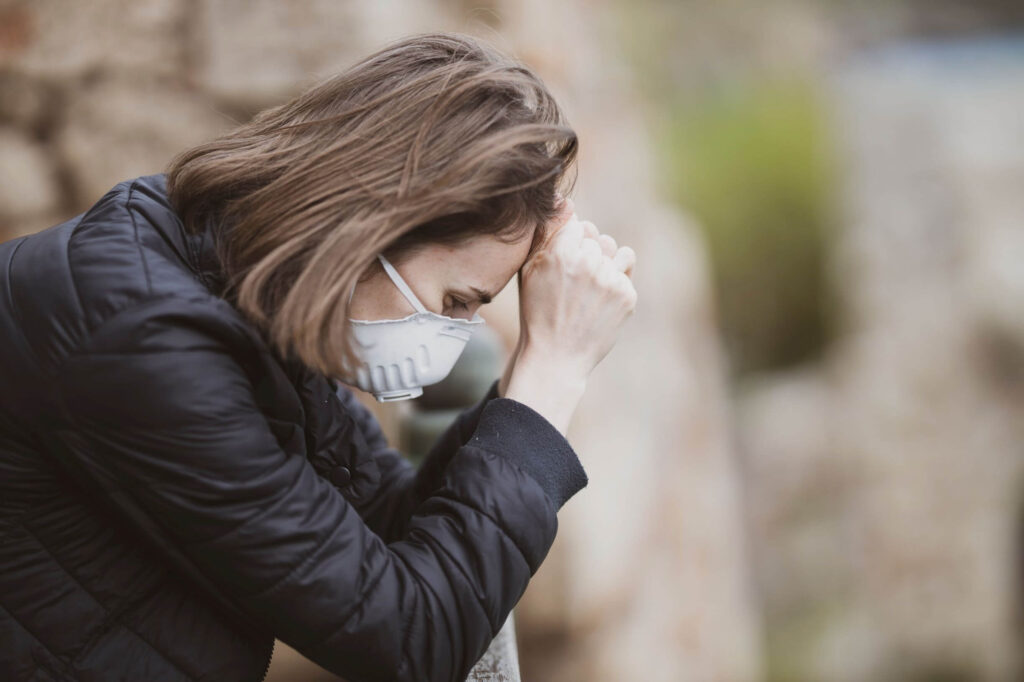As winter approaches, the days are growing shorter. Daylight in the Pennsylvania area will be reduced to just over nine hours a day in the upcoming weeks. While this is a normal occurrence each year, it can also be a very depressing time for some people. When you are dealing with seasonal affective disorder and addiction recovery, you may be challenged with getting through the winter months. This dual diagnosis can be especially challenging during the COVID-19 pandemic.
Seasonal Affective Disorder (SAD)
Approximately five percent of the US experiences the condition known as seasonal affective disorder (SAD), which is a combination of biologic and mood disturbances that usually occurs in the fall and winter months. Symptoms can be present for about 40 percent of the year, depending on where you live. In addition, even though the condition is associated with the darker days of the fall and winter, you may experience significant impairment from the associated depressive symptoms.
Symptoms
In addition to symptoms associated with depression, which can include losing interest in activities you once enjoyed, having problems with your sleep, having low energy, and feeling hopeless or worthless, SAD symptoms can also include:
- Oversleeping (hypersomnia)
- Overeating, particularly with a craving for carbohydrates
- Weight gain
- Social withdrawal (feeling like “hibernating”).
SAD and COVID-19
Dealing with social withdrawal can be especially challenging during COVID-19, when your sense of isolation may have increased. According to Dr. Elizabeth Reichert, clinical assistant professor of Stanford Psychiatry and Behavioral Sciences, the rate of anxiety and depression was high even before the pandemic struck.
Now, COVID-19 may have increased your sense of anxiety, particularly as your routines are disrupted. You may have even experienced job loss or financial stressors. As a professional, you may not have the option to isolate at home during the pandemic and that can increase your depression as well. Your life has changed dramatically as a result of social distancing efforts, and you may now be feeling a pervasive sense of loss, uncertainty, and increased isolation.
Dr. Reichert points out that research shows social isolation and loneliness are linked to poorer mental health. In addition, the loss of a job and the associated financial struggles are typically associated with increased depression, anxiety, distress, and low self-esteem increasing the risk for substance use and suicide.
Causes
While no one fully understands the root causes of SAD, research does indicate that the condition may be linked to reduced activity of the brain chemical (neurotransmitter) serotonin, which helps regulate your mood. SAD may occur in the late fall and winter months since sunlight controls the levels of molecules that help maintain normal serotonin levels, but in people with SAD, this regulation does not function properly, and so they have decreased serotonin levels in the winter.
Other research suggests that when you have the symptoms of SAD it is because you produce too much melatonin, the hormone that is central for maintaining the normal sleep-wake cycle. Since overproduction of melatonin increases sleepiness, that can explain the oversleeping you experience during the darker winter months.
When you have SAD, the changes in serotonin and melatonin levels disrupts your daily rhythms. When you can no longer adjust to the normal seasonal changes in the amount of daylight, it can lead to mood, sleep, and behavioral changes.
Treatment
When you are experiencing SAD, particularly during the COVID-19 pandemic, you may be tempted to turn to drugs or alcohol to alleviate the symptoms. If you find that you have suicidal thoughts, urges to harm yourself, pervasive hopelessness or helplessness, and are engaging in risky behaviors such as increased use of alcohol and substances that are impacting your life, you need to seek treatment. There are proven therapies that can help you through seasonal affective disorder and addiction recovery.
Treatment options include light therapy, psychotherapy, and antidepressant medications. When you have a dual diagnosis of seasonal affective disorder and addiction, your treatment will need to focus on both conditions to ensure that you can continue through a successful recovery. You can work with your treatment provider to understand the ways each condition affects the other and which methods of treatment will work best for you.
Providence Provides Safe Treatment During COVID-19
At Providence Treatment, we offer professionals, including physicians, attorneys, and pilots, state-of-the-art therapies for treating substance use and mental health disorders such as depression and SAD. During COVID-19, we want to ensure you have the recovery resources you need, so we use a telehealth technology that enables us to remain HIPAA-compliant and ensures your confidentiality is maintained, while providing you with the high quality treatment you need now to maintain your health and well-being. If you need help, contact us at 484.469.9592.









